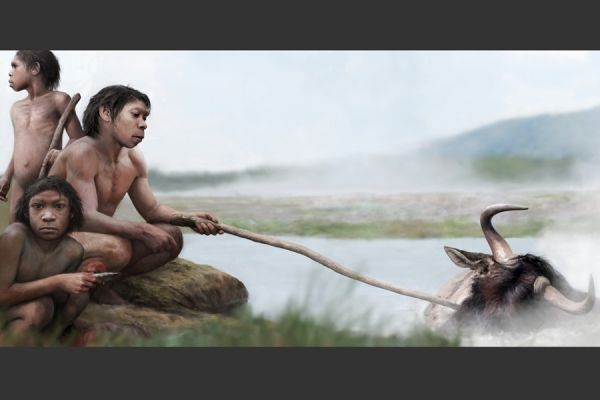Some of the oldest remains of early human ancestors have been unearthed in Olduvai Gorge, a rift valley setting in northern Tanzania where anthropologists have discovered fossils of hominids that existed 1.8 million years ago. The region has preserved many fossils and stone tools, indicating that early humans settled and hunted there.
Now a team led by researchers at MIT and the University of Alcalá in Spain has discovered evidence that hot springs may have existed in Olduvai Gorge around that time, near early human archaeological sites. The proximity of these hydrothermal features raises the possibility that early humans could have used hot springs as a cooking resource, for instance to boil fresh kills, long before humans are thought to have used fire as a controlled source for cooking.
“As far as we can tell, this is the first time researchers have put forth concrete evidence for the possibility that people were using hydrothermal environments as a resource, where animals would’ve been gathering, and where the potential to cook was available,” says Roger Summons, the Schlumberger Professor of Geobiology in MIT’s Department of Earth, Atmospheric, and Planetary Sciences (EAPS).
Continue reading at MIT.
Image via Tom Björklund.


